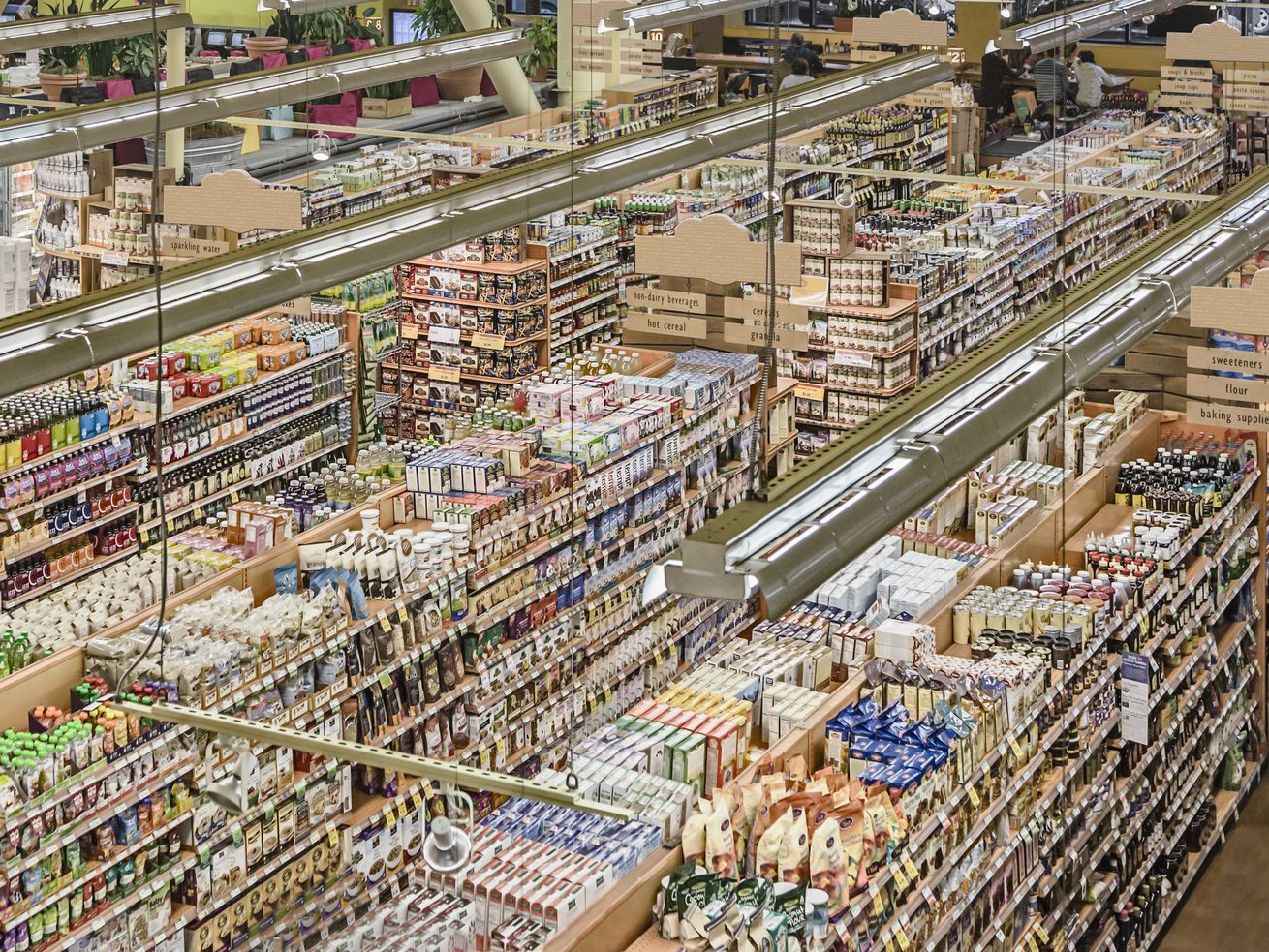The acquisition of stuff looms large in the American imagination. What is life under consumerism doing to us?
Some things are such an ingrained part of our reality that it can feel silly to even take note of them. Oxygen, say, or the popularity of smartphones. The existence of gravity, the practice of semi-regularly cutting the hair that grows from our heads, the linear nature of time, the fact that, hey, America sure is made up of a lot of states, isn’t it?
One of the biggest givens of modern American life is that we live in a consumer society. I am not shocking you by saying this. We don’t, as a matter of course, barter for or simply take things of value; we purchase them, and maybe we sell them, too. We are inundated with products to buy and encouragement to buy them, and we put energy and attention into the acquisition of consumer goods at a tremendous, society-defining scale.
Consumerism wasn’t always such a dominant force in Americans’ lives. Over the past 100 or so years, though — following the birth of mass production in the early part of the 20th century, the codification of the American dream in the 1950s, the perfection of advertising over the next decades, and the increased centrality of the stuff we own ever since — it has metastasized into something unavoidable, inescapable. All-consuming.
Over the next month, we’ll be rolling out more than a dozen stories that examine this entrenched reality.
You might notice a thread of pessimism throughout these stories. You could reasonably feel discouraged — both from buying specific items (bottled water, the subject of a beautiful comic next week, sure won’t come out looking great) and about the system itself.
This can be overwhelming and, let’s face it, annoying. For one thing, buying is necessary for most people to survive. Food, shelter, clothing: not really opt-in, rarely free. And buying can also be exciting, comforting, helpful, fun. Consumerism is full of little gifts; hell, consumerism practically invented gifts.
It’s also a system that gives us a lot of responsibility, and very little control. You should stop buying bottled water, yes — so should I. How many of us have to stop buying bottled water for it to make a difference? And how do you get all those people on the same page?
It’s worth realizing what parts of our lives consumerism does or does not control, what parts we want it to control, what parts we need and want each other’s help to change. What does it mean to live in a consumerist society? What does it do to us, to our ideas of ourselves, to our relationships to each other, to our planet? What do we benefit from? What hurts us?
—Meredith Haggerty, deputy editor of The Goods
/cdn.vox-cdn.com/uploads/chorus_asset/file/22691972/GettyImages_1223714147.jpg)
TikTok made me buy it
The video app is causing products to blow up — and flame out — faster than ever.
By Rebecca Jennings
/cdn.vox-cdn.com/uploads/chorus_asset/file/22691979/GettyImages_3228051.jpg)
Why do we buy what we buy? | Coming July 7
A sociologist on why people buy too many things.
By Emily Stewart
/cdn.vox-cdn.com/uploads/chorus_asset/file/22693903/GettyImages_1312472686.jpg) Newsday via Getty Images
Newsday via Getty ImagesThe lie of “expired” food — and the disastrous truth of America’s food waste problem | Coming July 8
Stop throwing your food away.
By Alissa Wilkinson
Editors: Meredith Haggerty, Melinda Fakuade, Alanna Okun, Caroline Houck, Daniel Gross
Author: Vox Staff
Read More



